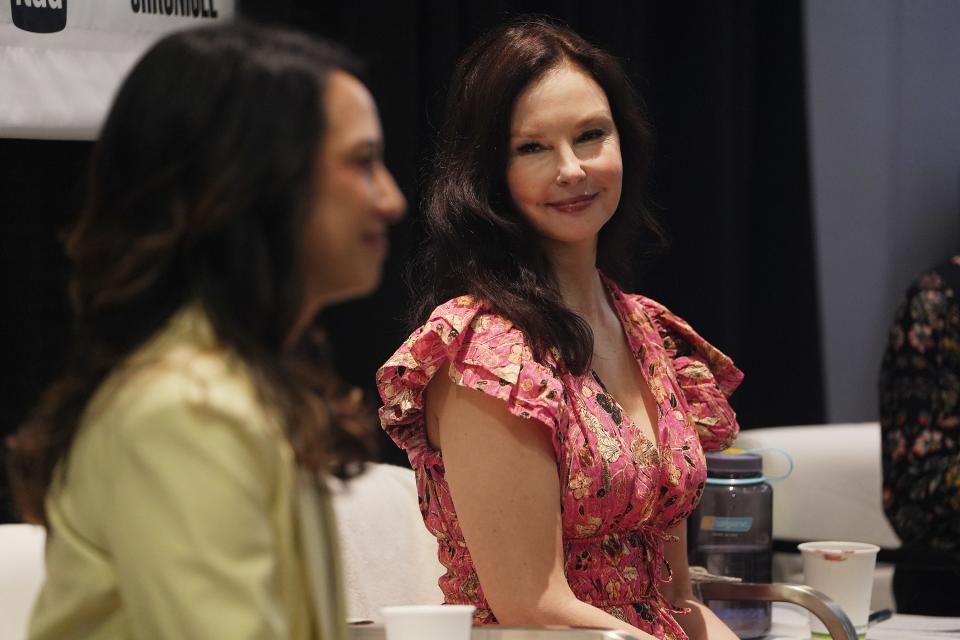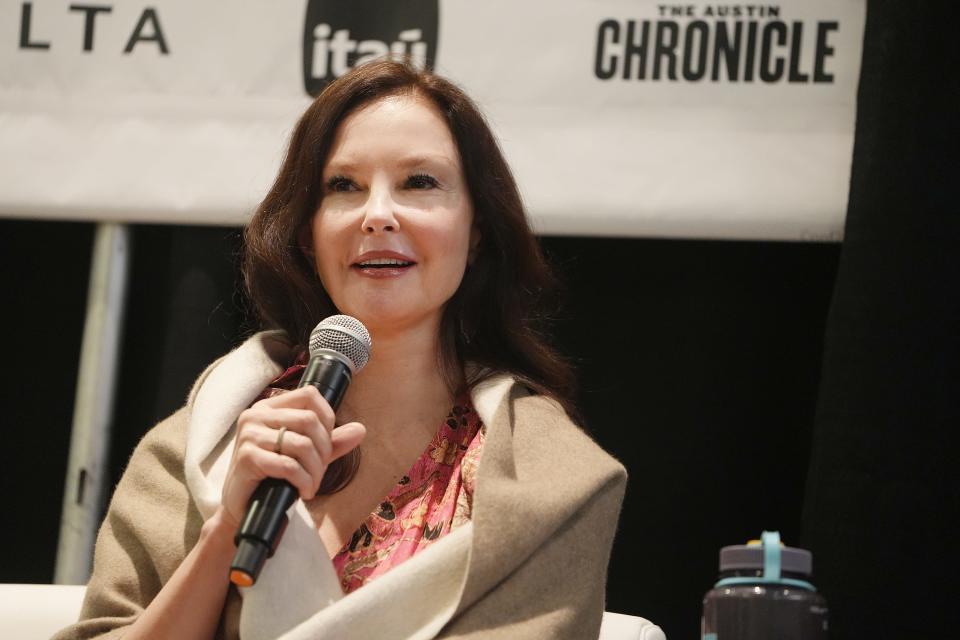Ashley Judd talks about her mother's death, mental health awareness at SXSW
- Oops!Something went wrong.Please try again later.
Editor's note: This story includes references to suicide. Information about suicide warning signs and resources for people in crisis can be found at the bottom of this story.
Actress Ashley Judd came to her first SXSW on Saturday to talk about suicide and her family's experience after her mother and country music star Naomi Judd died almost two years ago.
Ashley Judd took the audience back to that day in April 2022 when she discovered her mother and held her body while the sheriff's department investigated the death and interviewed her four times, while shooting video with their body cameras.
That footage and photos were later released to the media and published. She describes her mental health as going from "high functioning shock" as police interviewed her to experiencing repeated trauma once the details of her mom's death were published.
"The manner of her death lives in perpetuity," she said. The family later sued the state of Tennessee and is working on a law named after Naomi Judd to create privacy protections after a death by suicide.
Her mother's death continues to come up, Ashley Judd said. Recently a story about her mother's house being for sale mentioned how her mother died by sensationalizing it in the headline. "My sister came across it and it was very disturbing to her," Judd said. "My family and the public is still haunted by it."

She doesn't want her mother's legacy to be how she died but how she lived, Judd said. She told stories about her mother like her early involvement in artificial intelligence. "You wouldn't know that about her," she said.
Naomi Judd also had a pretend alligator named Gillette that lived in her childhood basement, "and she helped me believe in fairies," Ashley Judd said.
"My mom called me sweet pea and she was really soft and she smelled pretty," Judd said.
Her mom also had undiagnosed mental health that convinced her that there was nothing she could do to feel better and that there was no hope, Judd said.

We have to talk about suicide
Judd's panel included Dave Richards, senior vice president of programming at Audacy media company; Rebecca Ruiz, a mental health reporter at Mashable; and Dr. Christine Yu Moutier, the chief medical officer at the American Foundation for Suicide Prevention.
"Almost every family has been touched by mental illness or suicide," Moutier said. In having these conversations, you don't have to have all the answers, you just have to listen and invite the conversation, she said.
"The conversation is so critical," Richards said. As a radio programmer in Seattle, he noticed a pattern of suicides starting with Nirvana's Kurt Cobain in 1994, then Alice in Chains' Layne Staley in 2002, then Soundgarden's Chris Cornell in 2017. "There was something going on there," Richards said. "We need to talk about it; we need to know how we feel."
Richards organized at first a local, then a national radio event, "I am listening," to get people talking about their experiences with suicide.
Language matters in how we talk about suicide
Both Moutier and Ruiz urged media and entertainment companies to change the way the talk about suicide. It's a mental health disease. We wouldn't say someone committed cancer, so we shouldn't say they committed suicide or that they had a failed or successful suicide attempt. "That sounds jarring," said Moutier.
Moutier pointed to research on spikes in suicides following a celebrity's death. The rates increased with Robin Williams and Marilyn Monroe, Moutier said, but with Kurt Cobain, they went down because of the way his partner Courtney Love talked about the loss and didn't glorify it. The press also wrote about it as a tragedy and included access to the crisis hotline.
What stories about suicide are we missing?
When stories about suicide are well-done they can become preventative, Moutier said.
The people who have survived suicide or a mental health illness and received treatment do not make it into stories, she said. Moutier advocates for inviting people to share their stories and presenting positive stories with resources.
Ashley Judd is one of those stories. Her and her mom's story have similar paths. Both experienced sexual abuse as children. Both dealt with a mental health diagnosis. "I lived with suicidal ideation as a kid," she said.
She went to a treatment center in 1996 and dealt with the unresolved childhood trauma. She continues to do evidence-based therapy including EMDR, which she did twice a week for four months following her mother's death. Eye Movement Desensitization and Reprocessing uses eye movement exercises while talking about trauma to reprogram the brain.
"Life is abundant and rich," she said. She knows her mother was proud of her for the treatment she received and the happiness she now experiences.
For people who are walking alongside a loved one with a mental health illness or suicidal thoughts, she reminds: "You deserve your own attention, and self-care is living."
If you or someone you know is suffering with mental health or suicidal thoughts, call the Suicide & Crisis Lifeline at 988 or text the 24-hour Integral Care line at 741-741.
This article originally appeared on Austin American-Statesman: Actress Ashley Judd talks about the death of Naomi Judd at SXSW panel

